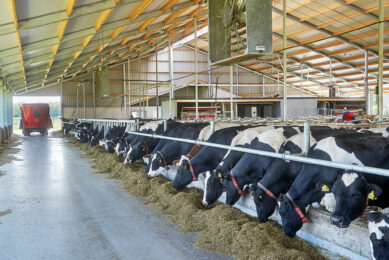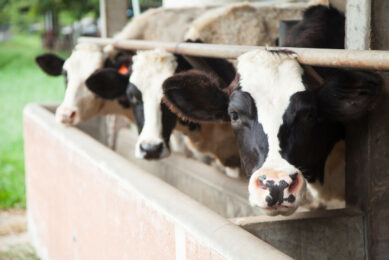University of Reading cashes on animal feeds research program
The University of Reading is leading on a new €4.1 million project to tackle the challenges of producing healthy and sustainable animal feeds as part of an EU programme to train a new generation of researchers.
The Marie Curie Initial Training Networks link research teams from across Europe to work on collaborative projects. They aim to train researchers with less than five years of experience.
In this latest network, 15 groups from seven countries will work on LegumePlus, which will investigate alternative foods for cattle, sheep and goats.
It was conceived because climate change will seriously affect the production of foods, including animal feeds.
Currently, animals in Europe are fed with large quantities of soybeans imported from the tropics, which is considered not sustainable. Home-grown protein sources, such as forage legumes, offer a valuable alternative.
Cutting ruminant emissions
Ruminants, especially dairy cows, are major contributors to environmental pollution, but by eating sainfoin or birdsfoot trefoil, which are almost forgotten traditional forage legumes, polluting emissions from animals could be cut significantly.
Dr. Irene Mueller-Harvey, project co-ordinator from the School of Agriculture, Policy and Development at Reading, said: "Some sainfoin varieties, for example, are nutritionally more efficient and contain natural compounds such as tannins that act against parasites.
“The yields differ greatly between sainfoin varieties but all are drought-resistant plants which need very little nitrogen fertiliser. It is an ideal fodder legume for sustainable livestock farming systems.
"Ruminant animals currently make inefficient use of protein. A typical dairy cow only uses about 30% of its dietary protein. However, in the presence of some types of tannins as found in these alternative forage legumes, ruminants make better use of this protein.
“They also generate nitrogen in a form that is more likely to build up soil organic matter rather than generate nitrous oxide, which is a 15 times more potent greenhouse gas than methane."
New generation of scientists
Through the research project, the training network will produce a new generation of agricultural scientists.
Young researchers will acquire a thorough understanding of ruminant nutrition and parasitology, analytical chemistry and plant breeding and excellent training in industrially relevant scientific skills – and have the opportunity to work in other countries.
Close collaboration between participants from the public and private sectors will ensure that the training programme will enhance the employability of young researchers and meet employers’ requirements for interdisciplinary and transferrable skills.











